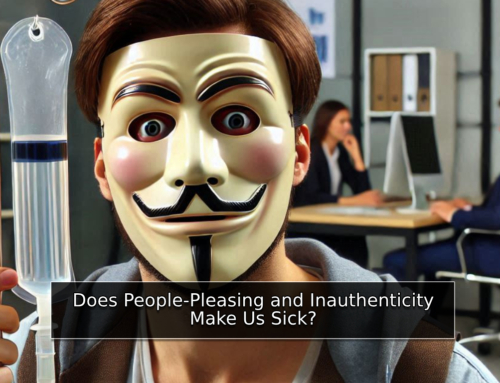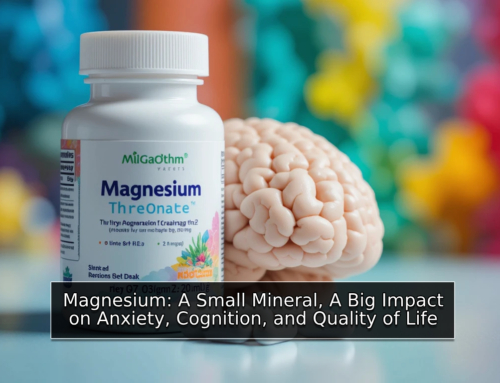Self-Gaslighting: How Emotions and Ego Distort Our Thinking
Self-gaslighting is a phenomenon where we question our own reality, emotions, and memories. It's a process that occurs within our minds, where we believe the negative stories we tell ourselves, even if they aren't necessarily based on facts.
The Role of the Negative Ego
The ego, especially when it's negative and judgmental, plays a central role in self-gaslighting. The negative ego tends to feed us negative thoughts about ourselves, making us believe we're not good enough or are inadequate. This can lead to constant comparisons with others, self-dissatisfaction, and harsh self-criticism. All of these reinforce low self-esteem and make it difficult for us to cope with challenges.
The Impact of Emotions on Self-Gaslighting
Our emotions, such as anger, frustration, inferiority, or depression, can distort our perception of reality. They act like colored filters, painting the world in darker colors and amplifying negative thoughts. These negative emotions, coupled with the negative ego, tend to "trap" us in the past, preventing us from moving forward and focusing on the present and future. Instead, we remain stuck in negative thoughts about past events, leading to feelings of helplessness and an inability to change the situation.
How Self-Gaslighting Affects Our Thinking
Self-gaslighting can lead to automatic negative thoughts that play on repeat in our minds. These thoughts can affect all areas of our lives, from personal relationships to professional achievements. They can cause us to avoid new situations, believe we are incapable of changing our lives, and focus solely on our failures.
The negative ego reinforces this pattern of negative thinking by strengthening the belief that we cannot improve or succeed.
Examples in Real Life
- "I always fail tests": This thought, driven by the negative ego, can lead to avoiding studying and fulfilling one's potential.
- "No one likes me": This thought, based on comparison to others and the belief that we are not good enough, can lead to loneliness and difficulties in building relationships.
- "I'm not good enough": This thought, which feeds constant self-criticism, can damage self-esteem and prevent us from achieving our goals.
The negative ego plays a central role in creating these negative thoughts by increasing feelings of low self-worth and decreasing belief in personal abilities.
What Does Research Say?
Numerous studies in the field of cognitive-behavioral psychology (CBT) show that automatic negative thoughts are the primary cause of psychological distress. Cognitive-behavioral therapy, especially process-based therapy (PBT), teaches us to identify and challenge these thoughts and replace them with more realistic and balanced ones.
The Difference Between CBT and ACT
CBT focuses on identifying and changing negative thoughts and cognitive distortions. It teaches techniques for coping with difficult situations and developing more positive thoughts. ACT, on the other hand, accepts thoughts as they are and teaches us to separate ourselves from our thoughts. It encourages acceptance of unpleasant emotions and the development of psychological flexibility and commitment to action.
How to Deal with Self-Gaslighting?
Self-gaslighting can be challenging to deal with alone. Seeking professional help, such as CBT or ACT therapy, can provide the support and tools needed. These therapies teach us to identify and challenge negative thoughts, address emotions with sensitivity, and focus on our values. Similar to the words of Dr. Russ Harris, one of ACT’s developers, "We don't have to believe every thought that pops into our heads," these therapies help us understand that our thoughts do not define us. Through these therapies, we can develop self-acceptance, increase resilience, and proactively work to improve the quality of our lives.
Summary
Self-gaslighting is a complex phenomenon, but it can be overcome. Understanding the psychological mechanisms underlying it, along with appropriate professional help, can help us break the cycle of negative thoughts and develop more fulfilling lives. By addressing negative emotions and the negative ego, we can free ourselves from the past and actively shape our future.
Contact now
Ready to take the first step towards positive change? Contact me now for more information and to schedule an appointment. Whether you prefer in-person sessions in Tel Aviv or virtual meetings via Zoom, my integrated approach of Cognitive Behavioral Therapy (CBT) and Acceptance and Commitment Therapy (ACT) can help you break free from struggles and find greater fulfillment in life. I'll be sure to get back to you as soon as possible. Let's embark on this transformative journey together!
Call Whatsapp 052-2325511
Or fill out the following form.
Can ACT and CBT assist you or your loved ones?
Welcome to my therapy practice, where I offer a powerful combination of Cognitive Behavioral Therapy (CBT) and Acceptance and Commitment Therapy (ACT) techniques. CBT is a goal-oriented, short-term approach that's highly effective for anxiety, depression, low self-confidence, and more. ACT complements CBT, helping you navigate life's challenges and find fulfillment and authentic, happier life.
If you're struggling with anxiety, depression, low self-image, or facing setbacks, CBT combined with ACT may be the key to transforming your life. Break free from the struggle and take a step towards a happier, more fulfilling life.
Contact me today to schedule an appointment and embark on your journey of positive change. You don't have to face it alone; I'm here to support you every step of the way. Let's work together to create the life you deserve!





